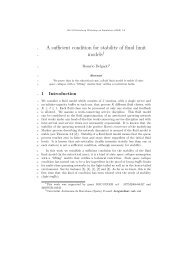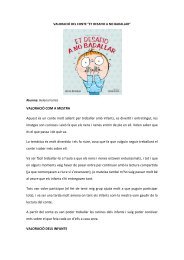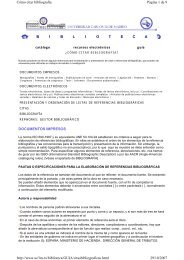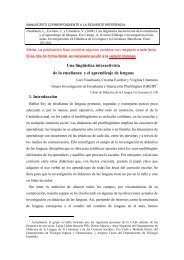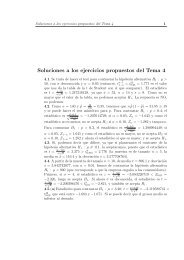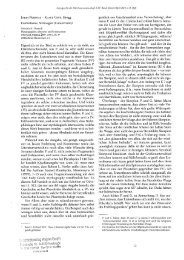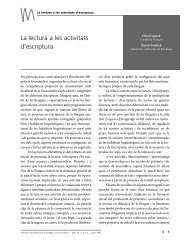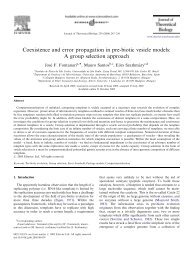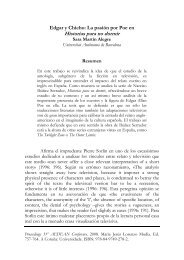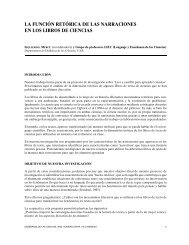please do not cite without permission from the authors
please do not cite without permission from the authors
please do not cite without permission from the authors
You also want an ePaper? Increase the reach of your titles
YUMPU automatically turns print PDFs into web optimized ePapers that Google loves.
separate agreement with <strong>the</strong> EAC customs union along with Tanzania,member of SADC, as already mentioned.So, taking <strong>the</strong> SADC region as a reference point, we find various fragmentednegotiation processes in which all its members, apart <strong>from</strong> Angola, <strong>the</strong>Democratic Republic of <strong>the</strong> Congo and South Africa, have ended up initiallinginterim agreements with <strong>the</strong> EU with different timetables and content in threedifferent frameworks: <strong>the</strong> SADC, <strong>the</strong> ESA group and <strong>the</strong> EAC, included in <strong>the</strong>former. If <strong>the</strong> negotiating capacity of <strong>the</strong> ACP countries was already limited,this division in different regional groups, which in turn make disaggregatedapproaches to new sub-groups, must limit it even fur<strong>the</strong>r (Keet, 2007;Goodison and Stoneman, 2005).In contrast to o<strong>the</strong>r regions of <strong>the</strong> continent, in Sou<strong>the</strong>rn Africa most of <strong>the</strong>LDCs of SADC have signed interim agreements accepting reciprocity in <strong>the</strong>irmerchandise trade while <strong>the</strong>oretically counting on <strong>the</strong> possibility of continuingwith <strong>the</strong> previous regime of non-reciprocal preferences. This could beunderstood by <strong>the</strong> fact that for <strong>the</strong> LDCs <strong>not</strong> signing an EPA, this situationpresents some problems when <strong>the</strong>y join a customs union with o<strong>the</strong>r memberswho agree to reciprocal trade rules with <strong>the</strong> EU. That will mean ei<strong>the</strong>r that it ishard to guarantee that such countries can continue to enjoy <strong>the</strong> benefits of <strong>the</strong>previous regime, or that it will be necessary to establish mechanisms to controlrules of origin, and this will create difficulties for <strong>the</strong> promotion of intra-regionaltrade (Marín, 2008; Thomas, 2004; Hurt, 2003; Solignac-Lecomte, 2001).Given all this confusion, <strong>the</strong> EPAs are going to make regional integrationinitiatives more difficult in SSA in general, and in Sou<strong>the</strong>rn Africa in particular.As a result of <strong>the</strong> signing of agreements reached through negotiations withindividual countries or with groups of countries which <strong>do</strong> <strong>not</strong> correspond topre-existing regional groupings, initiatives towards African integration will beweakened and distorted 27 (Hurt, 2003; Marín, 2008; Thomas, 2004; Hormeku,2000, Matambalya, 2000). If this is to be avoided <strong>the</strong> following will benecessary: flexible liberalisation of customs tariffs; reinforcing <strong>the</strong> productive27 It is enough to ask if it is conceivable that member countries of <strong>the</strong> EU, individually or insmall sub-groups, could negotiate agreements like EPAs with consolidated regional groups i<strong>not</strong>her continents <strong>without</strong> provoking a major political crisis inside <strong>the</strong> EU itself.22




